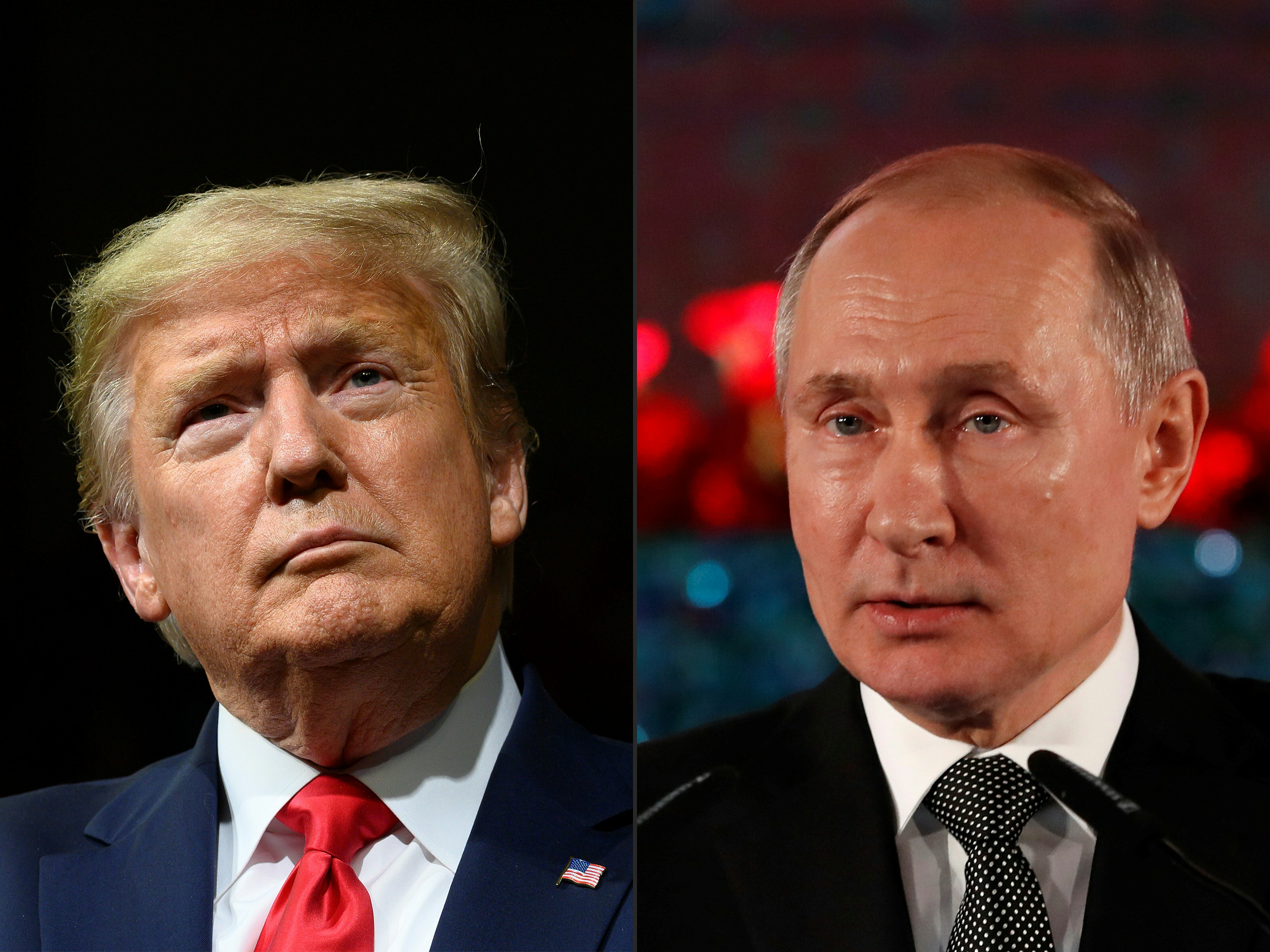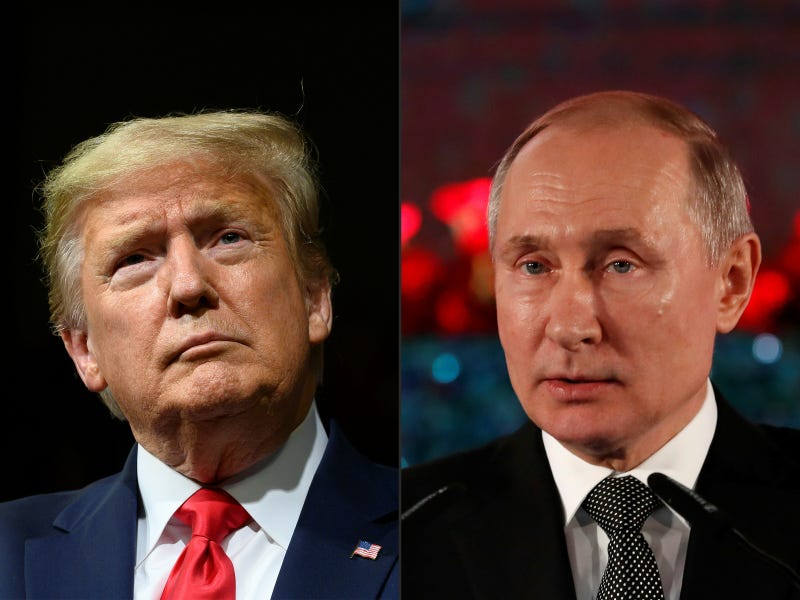Happy Wednesday! We hope you enjoy the (relative) brevity of today’s TMD. Spend those extra two minutes in your morning wisely.
Quick Hits: Today’s Top Stories
-
The United States confirmed 43,698 new cases of COVID-19 yesterday, with 6.7 percent of the 648,783 tests reported coming back positive. An additional 1,301 deaths were attributed to the virus on Tuesday, bringing the pandemic’s American death toll to 171,793.


-
Postmaster General Louis DeJoy announced the U.S. Postal Service will suspend operational changes—removing collection boxes, slashing overtime pay, cutting USPS hours—until after the 2020 election “to avoid even the appearance of any impact on election mail.” DeJoy’s comments did not address whether restructuring efforts already enacted would be reversed. He is scheduled to testify before the Senate on Friday and the House on Monday.
-
The S&P 500 and NASDAQ hit all-time highs at market close on Tuesday, fully recovering from February and March’s historic plunge. The rebound—fueled by tech giants—marks the quickest recovery from a bear market in history.
-
The University of Notre Dame announced plans to suspend in-person instruction for at least two weeks after experiencing a surge in coronavirus cases on its campus; 19 percent of COVID-19 tests conducted on campus Monday came back positive. Michigan State University President Samuel Stanley Jr. told students planning to live on campus this fall to “stay home and continue their education with MSU remotely.”
-
Mali President Ibrahim Boubacar Keïta announced his resignation on Wednesday, hours after mutinous soldiers stormed the capital and arrested him in a suspected coup. “I do not wish for blood to be shed anymore so I can maintain power,” Keïta said on state television.
Russiagate: Hoax, or Not a Hoax?

After an investigation lasting more than three years into Russia’s interference in the 2016 election, the U.S. Senate Intelligence Committee released its findings in a 966-page report detailing extensive efforts by Vladimir Putin’s government to sow chaos and influence outcomes in American politics. As the United States gears up for a contentious 2020 election—with various foreign adversaries holding a stake in its outcome—the mechanisms by which Moscow exploited American democracy for its own gain are worth reviewing.
The report outlines several key findings, each of which provide evidence of Russia’s “aggressive, multi-faceted” interventions to undermine Hillary Clinton’s presidential campaign.
One key finding of the investigation: extensive links between Trump campaign chairman Paul Manafort and Russian intelligence officer Konstantin Kilimnik. Manafort’s Russian contacts date back to 2004, when he established relationships with Kilimnik and Russian industrialist Oleg Deripaska. Manafort conducted “influence operations” across the globe on behalf of Russian-aligned interests.
When Manafort signed on to the Trump campaign in March 2016, he conducted clandestine communications with Kilimnik and reportedly shared campaign information with the Russian intelligence officer. The Senate committee was unable to determine not only the full context and content of Manafort’s communications with Kilimnik, but what Kilimnik did with the campaign information Manafort provided as well.
Another short-lived fixture of Trump’s presidential campaign, Roger Stone, appeared in the report for his attempts to obtain information from WikiLeaks founder Julian Assange. “WikiLeaks actively sought, and played, a key role in the Russian influence campaign and very likely knew it was assisting a Russian intelligence influence effort,” the report reads. “Staff on the Trump Campaign sought advance notice about WikiLeaks releases, created messaging strategies to promote and share the materials in anticipation of and following the release, and encouraged further leaks.” The campaign used Stone as its source for advance notice of Wikileaks releases.
The Senate’s investigation also looked into a 2016 Trump Tower meeting, during which Trump seemingly sought to leverage his connection to longtime friends and business partners, the Agalarovs. But, the report found, “participants on both sides of the meeting were ultimately disappointed with how it transpired.”
And notably, Russian meddling didn’t end in November 2016. The report found that Russian officials continued spreading disinformation through at least January 2020, peddling a story that Ukraine—not Russia—had interfered in the 2016 election.
The report echoed Justice Department Inspector General Michael Horowitz’s report last year that highlighted the FBI’s mistaken reliance on Christopher Steele, the author of the Trump dossier. The “FBI gave Steele’s allegations unjustified credence, based on an incomplete understanding of Steele’s past reporting record,” the report said. “The Russian attack on the 2016 U.S. elections presented a new, quickly-evolving, and complex set of circumstances for the FBI.”
The investigation “found absolutely no evidence, whatsoever, that Donald Trump or his campaign colluded with Russia to meddle in our elections,” Acting Senate Intelligence Committee Chairman Marco Rubio said on Twitter. But Sen. Mark Warner, the committee’s highest-ranking Democrat, warned of “a breathtaking level of contacts between Trump officials and Russian government operatives that is a very real counterintelligence threat to our elections.”
“While this Volume did not find evidence of collusion between President Trump and the Russians, it does detail a stunning accounting of the FBI’s sloppy work and poor judgement,” Republican Sens. Jim Risch, Marco Rubio, Roy Blunt, Tom Cotton, John Cornyn, and Ben Sasse said in an addendum at the end of the report, alluding to Steele. “In 2016, the Democratic Party, using a series of arm’s length transactions, hired a foreign citizen to seek out dirt on a political opponent, provided by foreign sources.”
Democratic Sens. Martin Heinrich, Dianne Feinstein, Ron Wyden, Kamala Harris, and Michael Bennet, in their postscript, cited the Trump campaign’s connections to Russian intelligence officials and oligarchs. “The Committee’s bipartisan Report found that Paul Manafort, while he was Chairman of the Trump Campaign, was secretly communicating with a Russian intelligence officer with whom he discussed Campaign strategy and repeatedly shared internal Campaign polling data. This took place while the Russian intelligence operation to assist Trump was ongoing,” the senators wrote. “This is what collusion looks like.”
Look for David’s French Press later today for an analysis on why the report provides cold comfort for partisans looking for a neat narrative of 2016 election misdeeds.
Florida Voters Embrace Provocateur Laura Loomer in GOP Primary
Last week, we filled you in on Marjorie Taylor Greene, the QAnon-spouting conspiracy theorist who believes that the 2018 midterms were “an Islamic invasion of our government,” has argued that the Obama administration deputized the criminal gang MS-13 to murder its enemies, and is all but certainly heading to Congress, having won her primary last week in Georgia’s ruby-red 14th Congressional District.
The GOP’s problems keeping the fringe at bay continued yesterday, one state south. This time, the Republican candidate who surged to primary glory in Florida’s 21st District was right-wing provocateur and self-proclaimed “proud Islamophobe” Laura Loomer. We’ve covered Loomer’s antics before: Suffice to say here that apart from her unflinching religious bigotry (“We should never let another Muslim into the civilized world”), she’s best known for wacky stunts like chaining herself to the door at Twitter headquarters to protest her banishment from the site.
Loomer’s campaign began as just such an internet stunt: She argued that by declaring herself a candidate she had made herself a public figure, and therefore Twitter had to let her back on. They didn’t, but she kept campaigning anyway—boosted along the way by encouraging retweets from President Trump and endorsements from Roger Stone and Rep. Matt Gaetz. Joe Gruters, chairman of the state party, sings her praises. Last night, she won her primary by about 17 points, to the pleasure of, among others, the president.
In the grand scheme of things, Loomer’s nomination matters far less than Greene’s, for a simple reason: Greene won her primary in a solid Republican district, and Loomer won hers in a solidly blue one. The seat’s current occupant, Rep. Lois Frankel, won nearly twice as many votes as her Republican challenger in 2016; in 2018, she ran unopposed.
Worth Your Time
-
Ride-sharing companies Uber and Lyft will likely shut down all operations in California on Friday. The companies’ exodus from the state follows a recent judicial order that gives the companies until August 18 to comply with AB 5, a law that tightly regulates independent contractors in the state. “Uber employs approximately 140,000 drivers in California and Lyft employs roughly 80,000,” writes Brad Polumbo for the Foundation for Economic Education this week. “These 220,000 working Californians will now lose their source of income in the middle of a pandemic and recession, all thanks to the naive intervention of Sacramento regulators who thought they could plan the market.”
-
If all goes according to plan, we should see a COVID-19 vaccine approved for public use by the end of this year or early 2021. But that approval is not the finish line—there’s still the matter of manufacturing and distributing enough doses. In a Bloomberg column, Scott Duke Kominers and Alex Tabarrok explain all that goes into a vaccine, and what the United States can be doing now to prepare for what will become one of the most crucial supply chains in recent memory. “Supply chains failed as the pandemic began, and we can’t let that happen again with vaccines,” the duo write. “Nobody should die because poor preparation keeps us from being able to deploy lifesaving technology quickly. We have to be ready to produce billions of doses as soon as a vaccine is approved—and that means we need to invest now.”
Presented Without Comment
Also Presented Without Comment
Also Also Presented Without Comment
Toeing the Company Line
-
At this rate, we might have to rename the podcast The Remnant with David French—at least until Jonah returns to the swamp. Whatever you want to call the podcast, National Review’s Jim Geraghty was on it, talking the three C’s: coronavirus, convention, and the campaign.
Let Us Know
TV viewership of the Democratic National Convention thus far is down from where it was in 2016, but online viewership is reportedly up dramatically. Almost 29 million tuned in to the virtual festivities Monday night—were you one of them? What do you think of the remote format? Will you watch the Republican National Convention next week?
Reporting by Declan Garvey (@declanpgarvey), Andrew Egger (@EggerDC), Charlotte Lawson (@charlotteUVA), Audrey Fahlberg (@FahlOutBerg), Nate Hochman (@njhochman), and Steve Hayes (@stephenfhayes).
Photographs by Photo by Jim Watson and Emmanuel Dunand/AFP/Getty Images.






Please note that we at The Dispatch hold ourselves, our work, and our commenters to a higher standard than other places on the internet. We welcome comments that foster genuine debate or discussion—including comments critical of us or our work—but responses that include ad hominem attacks on fellow Dispatch members or are intended to stoke fear and anger may be moderated.
You are currently using a limited time guest pass and do not have access to commenting. Consider subscribing to join the conversation.
With your membership, you only have the ability to comment on The Morning Dispatch articles. Consider upgrading to join the conversation everywhere.